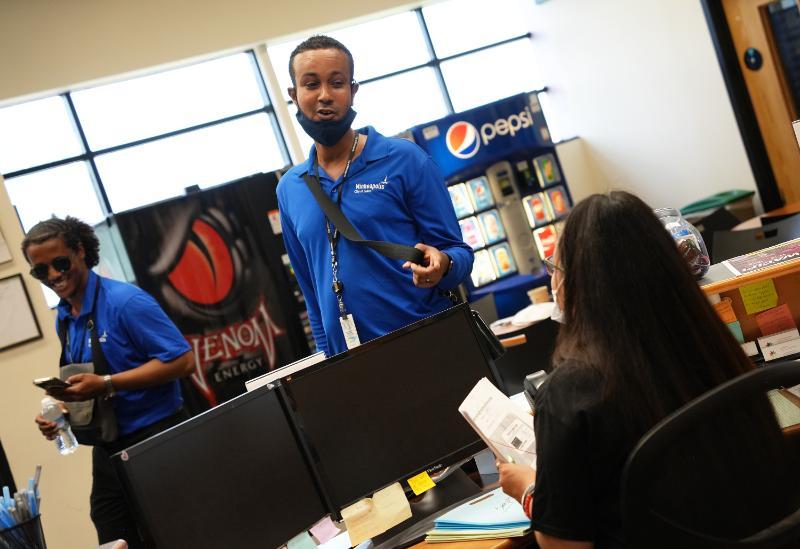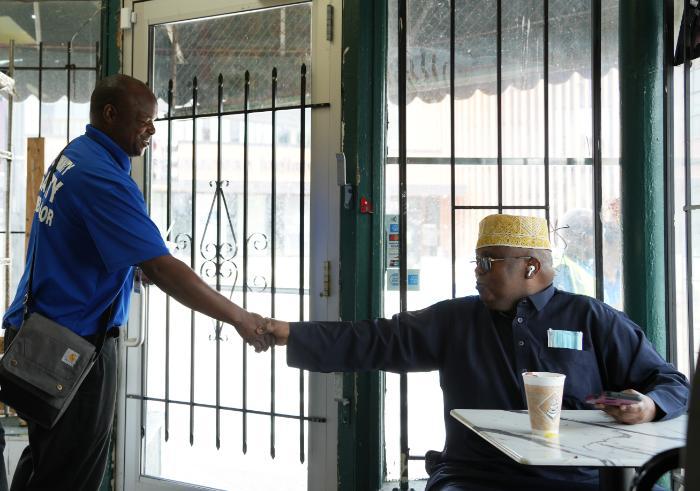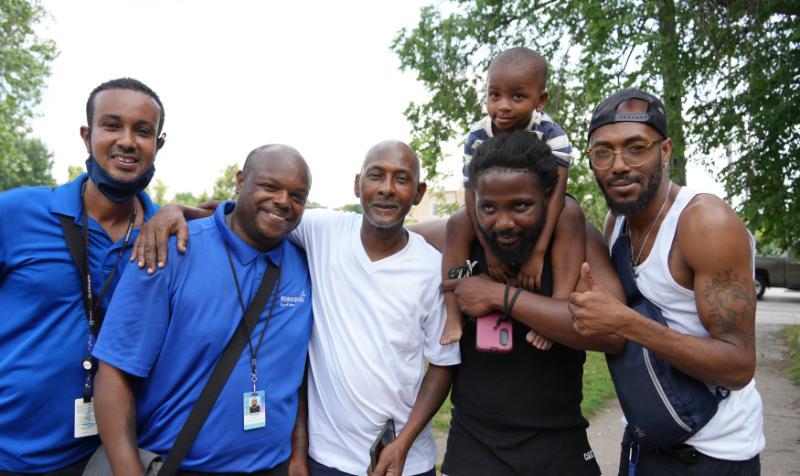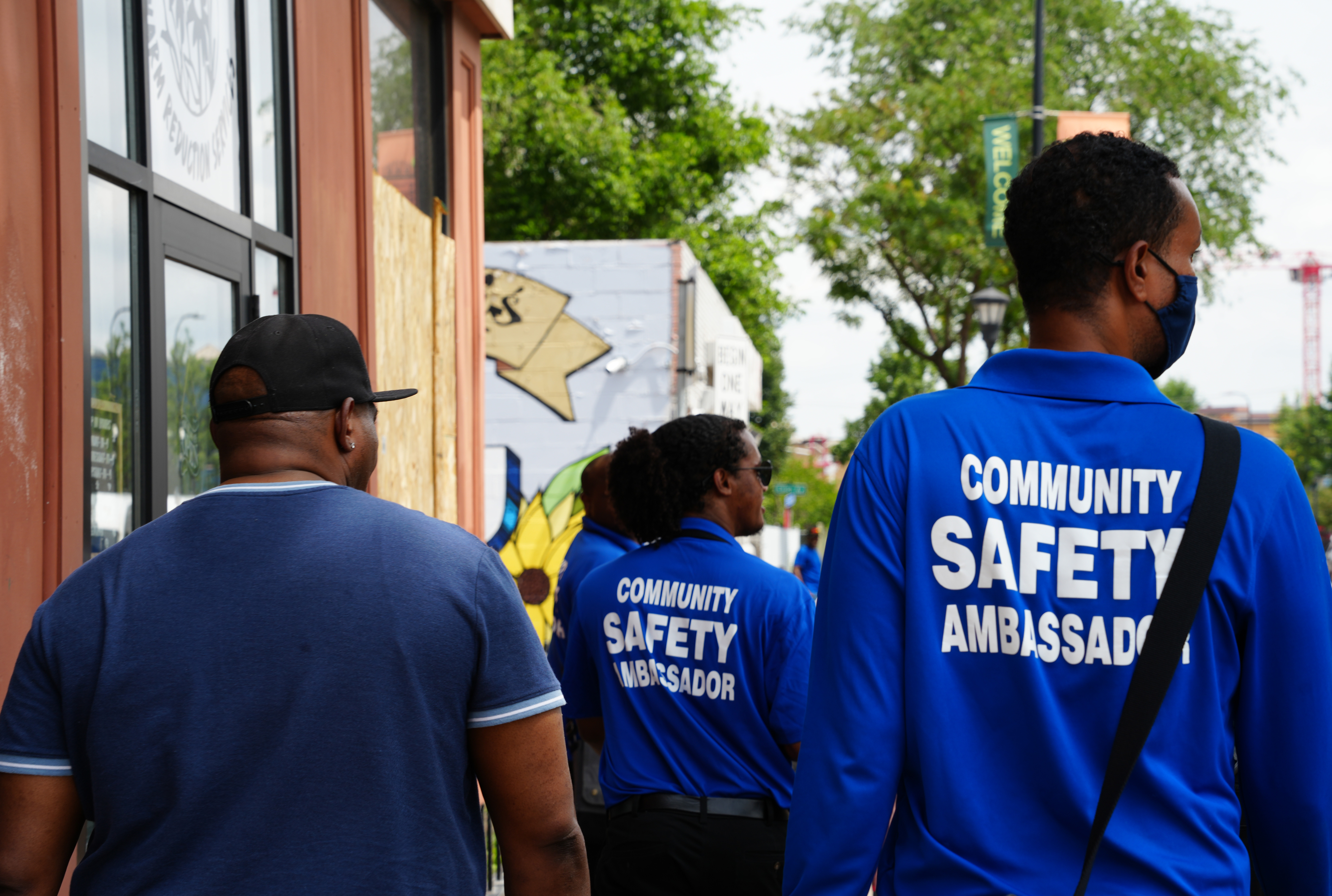It's a sweltering July summer afternoon on East Franklin Avenue, but that doesn't slow down Abdiweli Isse, Willie White, and Mudi Ali. Wearing their bright blue shirts with large, white letters that read "Community Safety Ambassadors" on the back, the team of three make their way from storefront to storefront, checking in with local business owners.
While smiling at familiar faces, they are connecting with community members and offering resources to people in the neighborhood.
"This work is about presence - about being seen, being approachable, and being proactive," said Community Safety Ambassador Willie White. "We give out as many resources as we can, ask questions, and try to make sure people out here feel like they are being looked out for. If someone is lying on the ground or struggling from the heat, we stop and check in on them."
Responding to the community
The Community Safety Ambassadors are part of a new pilot program from the City of Minneapolis Neighborhood Safety Department. City leaders heard from community members and responded to the need by piloting the community-driven safety response. The nonprofit, Metro Youth Diversion Center, a community-based organization that specializes in supporting underserved communities, was selected to operate the program. The pilot is first focusing on addressing safety needs along two historic and culturally rich communities: East Franklin Avenue and East Lake Street.

Building relationships
On this particular day, the team walks into the Minneapolis American Indian Center, where they're greeted by receptionists with bright smiles. A few blocks away, they stop at the American Indian OIC, an adult training and education center, another vital hub in the Native community.
"We're here to support you," says White. "Let us know if you need anything."
These aren't new visits - the ambassadors have been here before, as building these relationships is a key piece of their work. The East Franklin Avenue cultural district is alive with Indigenous culture. The area features large murals, art on utility boxes, and Native-run businesses and organizations, like Pow Wow Grounds Coffee Shop. These all offer daily reminders of the area's rich roots and continuing presence.
But the community has also faced its challenges. That's where the Safety Ambassadors come in. Their role is to be a visible, friendly presence - ready to help with anything from filing a safety-related report or offering NARCAN in an emergency, to simply serving as a safety escort, traveling with someone who may feel uneasy in the area.

Cultural connection, real support
The team checks in at Maria's Cafe, a longstanding Franklin Avenue staple. Staff there not only welcomed them in, but also offered them cold ice water to help beat the heat. The group stops by Franklin Library, then Franklin Market, a halal meats grocery store.
"These are important relationships we want to build," said Community Safety Ambassador Mudi Ali, who greeted Franklin Market's owner in the Somali language. Ali speaks Somali, Swahili, and English. "We can speak to many of these business owners in their native languages. You can feel how that small act makes a big difference. There's trust. They know we're here to support them."
Investing in the community
East Franklin Avenue and East Lake Street were both selected for the pilot because of their cultural significance and current challenges that can be largely impacted from this proactive support. This isn't just about reducing violence and challenges. It's about growing trust, uplifting community strengths, and meeting day-to-day needs in ways that feel personal and affirming.
Back on Franklin Avenue, the ambassadors walk past a local resident's home with several men and children who are passing the afternoon on their stoop. As a group of already familiar faces, the team is greeted with warm, excited greetings and handshakes.
"They're such a great asset to the community," said Morr'Quem Patton-Hobson, who owns the home. "The kids are able to play safely, we see less drugs, more togetherness. It's a beautiful thing - we need more of it. I've been a person who's lived in this community for four or five years now - and I can actually say it's getting better."

"All the people have been really welcoming," said White. "There's a lot of life, a lot of culture, and a lot of love. We're just here to be part of that - to help people feel safer and more connected."
And in that simple mission, while showing up with care, the ambassadors are helping to shape what community safety in Minneapolis can look like.


